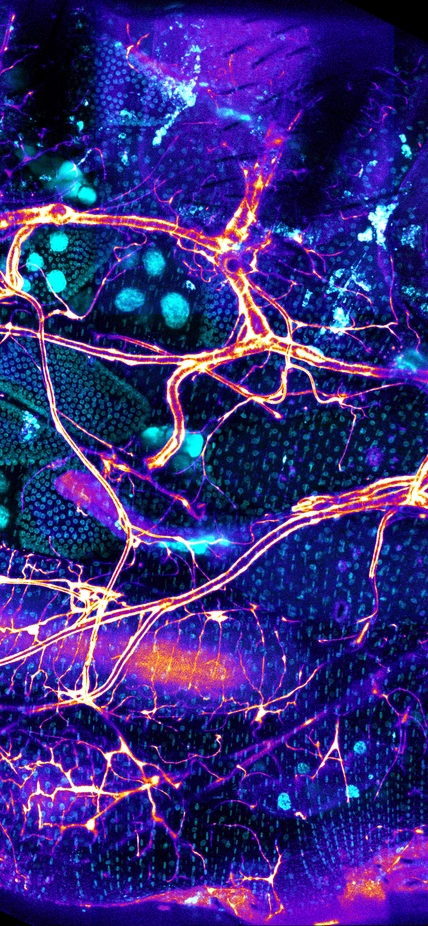Washington, DC—Carnegie William Ludington’s quest to understand the community ecology of our gut microbiome was this spring awarded nearly $1 million over three years from the National Science Foundation. He was also selected as one of 14 researchers to receive $55,000 from the Research Corporation for Science Advancement for its inaugural Scialog: Microbiome, Neurobiology, and Disease initiative.
“Since he arrived at Carnegie in 2018, Will has been aggressively pursuing breakthroughs in microbiome research—deploying a multitude of genetic, physiological, and mathematical approaches,” said Carnegie Embryology Director Yixian Zheng. “These two grants are richly deserved and will propel his work to a new level of excellence.”
The human microbiome is an ecosystem of hundreds to thousands of microbial species living within our gastrointestinal system. It affects our health and even our longevity. But the tremendous diversity of these communities makes it challenging to elucidate how the various parts of the microbiome add up to a greater whole.
“Think of the microbiome as a Busby Berkeley film—each dancer is doing something interesting, but it’s only when the camera pulls back to see the whole company from overhead that you understand the magnitude of the piece,” Ludington said. “My lab uses various techniques and approaches to probe these myriad relationships and attempt to reveal how the microbiome functions as a collective unit.”
His NSF-funded project, jointly led with Stanford University’s Kerwyn Huang, aims to combine cellular physiology and ecological theory to understand the link between the actions of single cells and their success in the gut microbial ecosystem.
Knowing how an individual cell’s response to its environmental surroundings affects its evolutionary fitness in the microbial community would be a major advance in the field. It could enable microbiome engineering to improve human health, increase agricultural yields, protect freshwater resources, and more.
Ludington says that evolutionary principles can also help explain the microbiome’s profound impact on neurological health and function.
“Age-related loss of microbiome species diversity is associated with neurological disorders in fish, mice, and humans,” Ludington explained. “We hypothesize that the mechanism behind this neurodegeneration is evolutionary, rather than ecological.”
His Scialog project, jointly led with UCLA’s Nandita Garud, could cause in a fundamental shift in the approach to microbiome research by investigating relationships between genetic changes in the microbiome and age-related frailty.
Short for science + dialog the awards were sponsored by RCSA, The Paul G. Allen Frontiers Group, and the Frederick Gardner Cottrell Foundation.
“We believe that interdisciplinary collaboration in biology is key to solving some of its biggest mysteries,” said Kathy Richmond, senior director of The Paul G. Allen Frontiers Group. “Key among them: How is the health of our gut related to the health of our brain?”
“Catalyzing projects that bring together creative, young researchers with diverse viewpoints and experience could pave the way for new discoveries,” added RCSA president and chief executive officer Daniel Linzer.
